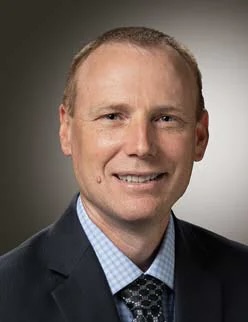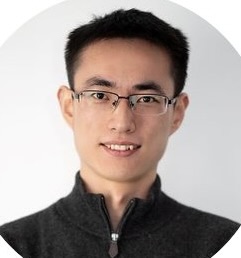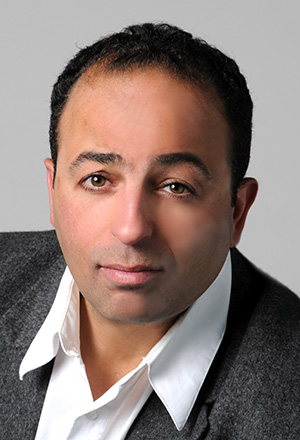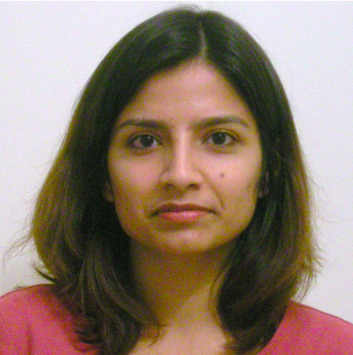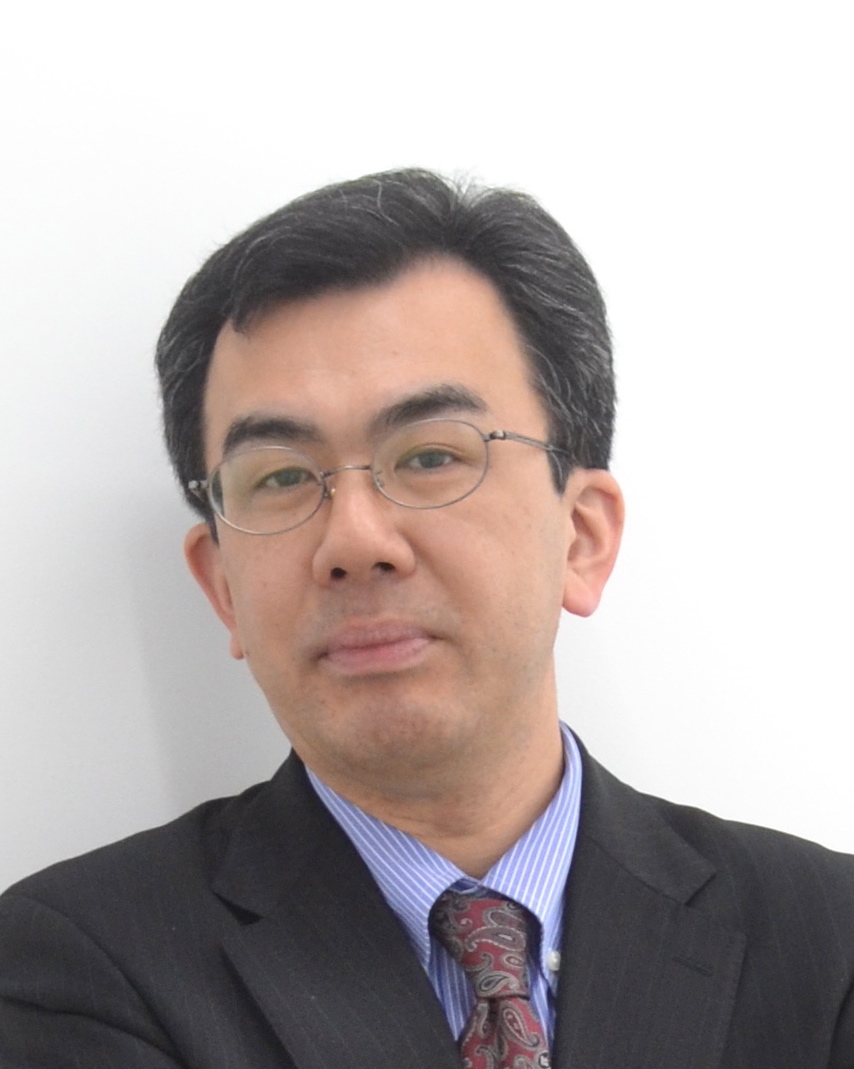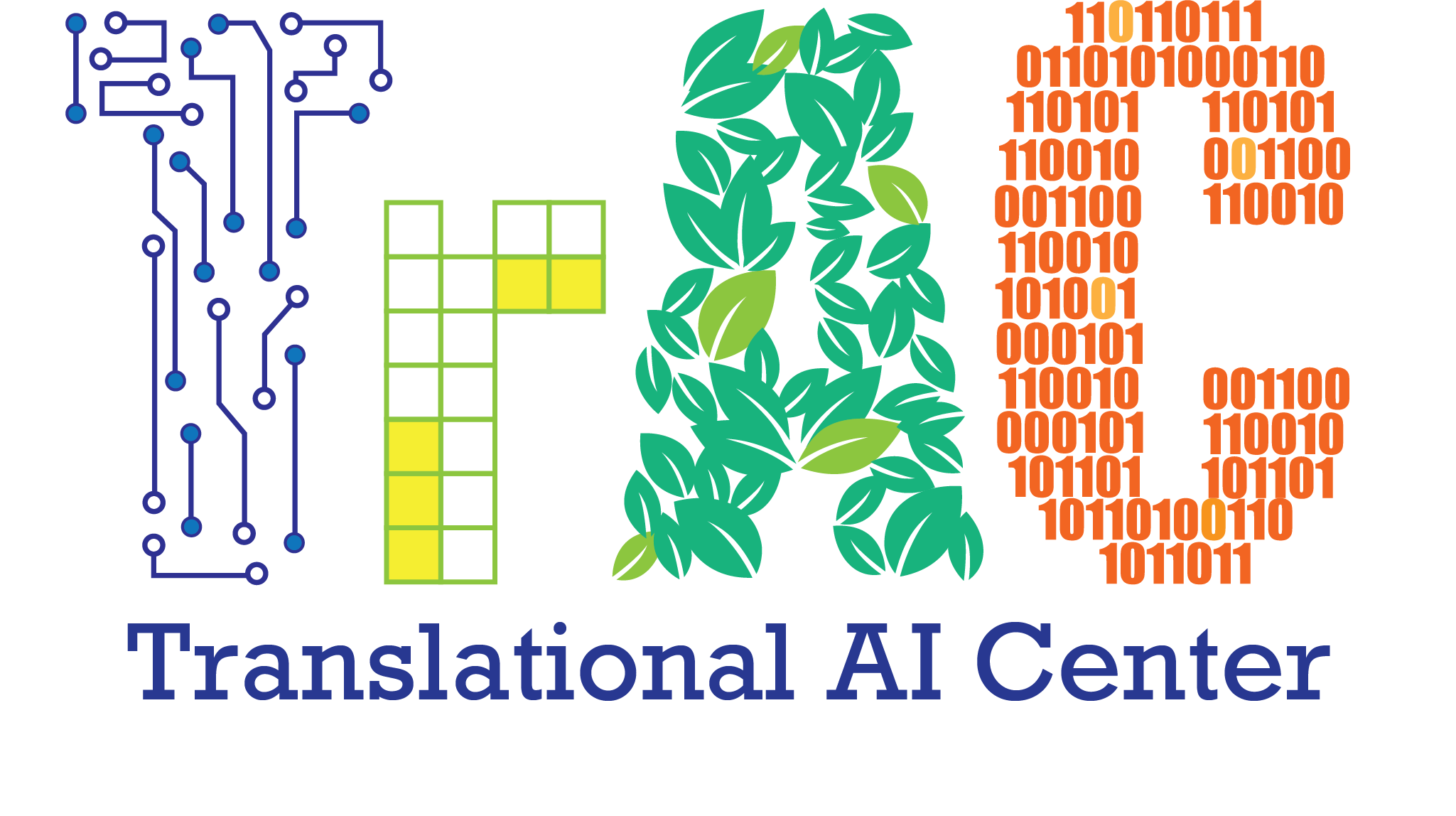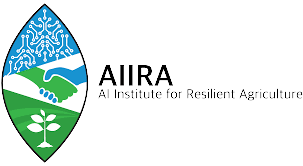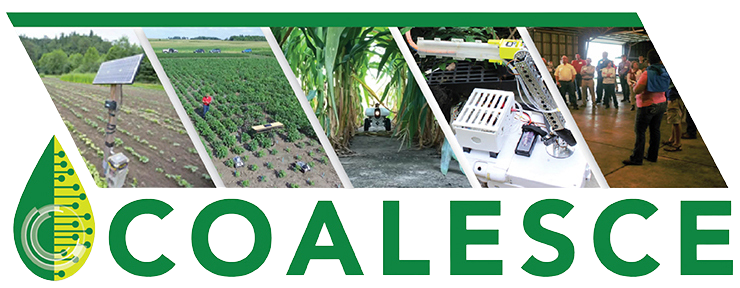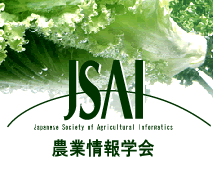| Grape Cold Hardiness Prediction via Multi-Task Learning |
Aseem Saxena (Oregon State University)*; Paola Pesantez-Cabrera (Washington State University); Rohan Ballapragada (Oregon State University); Kin-Ho Lam (Oregon State University); Markus Keller (Washington State University); Alan Fern (Oregon State University) |
| Genetically driven autoencoders for trait quantification using hyperspectral leaf reflectance in a maize panel. |
Michael Tross (University of Nebraska-Lincoln)*; Talukder Z. Jubery (Iowa State University); Anirudha A Powadi (Iowa State University); Yufeng Ge (University of Nebraska-Lincoln); Baskar Ganapathysubramanian (Iowa State University); James Schnable (University of Nebraska–Lincoln) |
| Prediction of Leaf Angles Using 2D Images in a Sorghum Diversity Panel |
Ryleigh J Grove (University of Nebraska-Lincoln)*; Michael Tross (University of Nebraska-Lincoln); James Schnable (University of Nebraska–Lincoln) |
| Exploring the fragility of deep learning in plant stress detection problems |
Nasla Saleem (Iowa State University)*; Talukder Zaki Jubery (Iowa State University); KOUSHIK NAGASUBRAMANIAN (Iowa State University); Soumik Sarkar (Iowa State University); Asheesh K. Singh (Iowa State University); Arti Singh (Iowa State University); Baskar Ganapathysubramanian (Iowa State University) |
| Deep-learning in 3D from virtual plants for segmentation and completion tasks |
David Colliaux (Sony CSL)*; Fabrice Besnard (ENS Lyon); Ayan Chaudhury (Indian Institute of Technology Kharagpur); Mona Sheikh Zeinoddin (Sony CSL); Peter Hanappe (Sony CSL Paris); Christophe Godin (INRIA Virtual Plants) |
| Using hyperspectral reflectance from maize hybrids and their inbred parents to investigate hybrid vigor for leaf traits |
Brooke A Bouwens (Manchester University )* |
| Procedural generation of 3D maize models for LAI prediction |
Ryan J Hoffman (Corteva Agriscience)* |
| A small subset of genes can predict of complex trait with high accuracy in maize |
Vladimir J Torres-Rodriguez (University of Nebraska-Lincoln)*; James Schnable (University of Nebraska–Lincoln) |
| Smart Quantification and Localization of Aphids Using Scaled-YOLOv4 |
Fateme Fotouhi (Iowa State University); Isaac Baccam (College of William and Mary ); Dinakaran Elango (Iowa State University); Samuel Blair (Iowa State University); Antonella Ferela (Iowa State University); Liza Van der Laan (Iowa State University); Matthew O'Neal (Iowa State University); Baskar Ganapathysubramanian (Iowa State University); Arti Singh (Iowa State University); Asheesh K. Singh (Iowa State University); Soumik Sarkar (Iowa State University)* |
| Hierarchical Transfer Learning on Scaled-YOLOv4 for Insect Detection |
Fateme Fotouhi (Iowa State University); Kevin Menke (Missouri University of Science and Technology); Aaron Prestholt (Iowa Soybean Association ); Ashish Gupta (Missouri University of Science and Technology, Rolla); Mattew Carroll (Iowa State University); Sajal K. Das (Missouri University of Science and Technology); Petro Kyveryga (Iowa State University); Baskar Ganapathysubramanian (Iowa State University); Arti Singh (Iowa State University); Asheesh K. Singh (Iowa State University); Soumik Sarkar (Iowa State University)* |
| Self-supervised learning for label efficient corn kernel classification |
David Dong (Iowa State University); KOUSHIK NAGASUBRAMANIAN (Iowa State University); Ruidong Wang (Iowa State University); Ursula Frei (Iowa State University); Talukder Zaki Jubery (Iowa State University); Thomas Lubberstedt (Iowa State University); Baskar Ganapathysubramanian (Iowa State University)* |
| Virtual reality assisted stress tolerance rating of soybean varieties |
Shambhavi Joshi (Iowa State University)*; Anushrut Jignasu (Iowa State University); Therin Young (Iowa State University); Dinakaran Elango (Iowa State University); Talukder Zaki Jubery (Iowa State University); Sarah Jones (Iowa State University); Aditya Balu (Iowa State University); Arti Singh (Iowa State University); Baskar Ganapathysubramanian (Iowa State University); Asheesh K. Singh (Iowa State University); Adarsh Krishnamurthy (Iowa State University) |
| Robotic Manipulation for Plant Interaction Using Reinforcement Learning |
David Leguizamo (Iowa State University); Yogesh Chawla (IIT KGP); Kumar Saurabh (Iowa State University); Xian Yeow Lee (Iowa State University); Arti Singh (Iowa State University); Asheesh K. Singh (Iowa State University); Baskar Ganapathysubramanian (Iowa State University); Soumik Sarkar (Iowa State University)* |
| Transferability of VIR-NIR-SWIR spectroscopy model for predicting sorghum leaf traits |
Deniz Istipliler (University of Nebraska Lincoln)*; Marcin Grzybowski (University of Nebraska Lincoln); Mackenzie Mackenzie Zwiener (University of Nebraska Lincoln); Yufeng Ge (Department of Biological Systems Engineering, University of Nebraska-Lincoln); James Schnable (University of Nebraska–Lincoln) |
| A virtual framework for estimating canopy light interception of field-grown maize |
Nasla Saleem (Iowa State University)*; Therin Young (Iowa State University); Yan Zhou (Iowa State University); Jiale Feng (Iowa State University); Anushrut Jignasu (Iowa State University); Aditya Balu (Iowa State University); Talukder Zaki Jubery (Iowa State University); Patrick Schnable (Plant Sciences Insititute, Iowa State University, Ames, IA); Soumik Sarkar (Iowa State University); Adarsh Krishnamurthy (Iowa State University); Baskar Ganapathysubramanian (Iowa State University) |
| Self-Supervised Multimodal Data Fusion Strategies for Crop Canopy Reflectance |
Anirudha A Powadi (Iowa State University)*; Timilehin Ayanlade (Iowa State University); Yogesh Chawla (Iowa State University); Sarah Jones (Iowa State University); Talukder Zaki Jubery (Iowa State University); Arti Singh (Iowa State University); Asheesh K. Singh (Iowa State University); Soumik Sarkar (Iowa State University); Baskar Ganapathysubramanian (Iowa State University) |
| Compositional Autoencoders to disentangle genotype and environment specific latent traits |
Anirudha A Powadi (Iowa State University)*; Michael Tross (University of Nebraska-Lincoln); Zihao Zhang (Iowa State University); Talukder Zaki Jubery (Iowa State University); Patrick Schnable (Plant Sciences Insititute, Iowa State University, Ames, IA); James Schnable (University of Nebraska–Lincoln); Baskar Ganapathysubramanian (Iowa State University) |
| Out-of-distribution algorithms for robust insect-pests classification |
Mojdeh Saadati (Iowa State University)*; Shivani Chiranjeevi (Iowa State University); Aditya Balu (Iowa State University); Talukder Zaki Jubery (Iowa State University); KOUSHIK NAGASUBRAMANIAN (Iowa State University); Asheesh K. Singh (Iowa State University); Soumik Sarkar (Iowa State University); Arti Singh (Iowa State University); Baskar Ganapathysubramanian (Iowa State University) |
| A self-supervised insect-pests detection app for precision agriculture |
Shivani Chiranjeevi (Iowa State University)*; KOUSHIK NAGASUBRAMANIAN (Iowa State University); Matthew Carroll (Iowa State University); Sahishnu Hanumolu (South Fayette Township High School); Aditya Gupta (William Fremd High School); Talukder Zaki Jubery (Iowa State University); Soumik Sarkar (Iowa State University); Asheesh K. Singh (Iowa State University); Arti Singh (Iowa State University); Baskar Ganapathysubramanian (Iowa State University) |
| 3D point cloud data for plant stress phenotyping |
Shivani Chiranjeevi (Iowa State University)*; Therin Young (Iowa State University); Dinakaran Elango (Iowa State University); KOUSHIK NAGASUBRAMANIAN (Iowa State University); Talukder Zaki Jubery (Iowa State University); Soumik Sarkar (Iowa State University); Asheesh K. Singh (Iowa State University); Arti Singh (Iowa State University); Baskar Ganapathysubramanian (Iowa State University) |
| AgGym: A novel Gym environment for designing RL agents for biotic stress mitigation in agriculture |
Kai Liang Tan (Iowa State University); Matthew E Carroll (Iowa State University); Mahsa Khosravi (Iowa State University); Liza Van der Laan (Iowa State University); Daren S Mueller (Iowa State University); Arti Singh (Iowa State University); Baskar Ganapathysubramanian (Iowa State University); Asheesh K. Singh (Iowa State University); Soumik Sarkar (Iowa State University)* |
| A Japan-Indo bilateral research project - Data science-based farming support system for sustainable crop production under climatic change |
Seishi Ninomiya (The University of Tokyo)* |
| Skeleton Extraction of Self-Occluded Tree Canopies |
Chung Hee Kim (CMU Robotics Institute)*; George Kantor (CMU) |
| Realistic Simulation Environments to Achieve Visual Servoing on Soft Continuum Arms in Constrained Environments |
Shivani Kamtikar (University of Illinois at Urbana Champaign )*; Eric Ji (University of Illinois at Urbana Champaign); Naveen Kumar Uppalapati (University of Illinois at Urbana Chamapaign); Girish Krishnan (University of Illinois at Urbana Champaign); Girish Chowdhary (University of Illinois at Urbana Champaign) |
| Utility of Explainable Machine Learning (eXML) for the Prediction of Stomatal Conductance |
Srishti Gaur (The Ohio State University)*; Darren T Drewry (Ohio State University) |
| Evolution of IoT in Open Fields |
Masayuki Hirafuji (The University of Tokyo)* |
| Crop Yield Prediction for US Corn Belt by Integrating Crop Simulation with Machine Learning Models |
Saiara Samira Sajid (Iowa State University)*; Isaiah Huber (Iowa State University); Mohsen Shahhosseini (Iowa State University); Guiping Hu (Iowa State University ); Sotirios Archontoulis (Iowa State University) |
| Robotic Field-based Plant Architectural Traits Characterization Using Stereo Vision and Deep Neural Networks |
Lirong Xiang (NC State University)*; Xuan Liu (Iowa State Univ); Aditya Raj (Iowa State Univ); Jianming Yu (Iowa State Univ); Patrick Schnable (Plant Sciences Insititute, Iowa State University, Ames, IA); Lie Tang (Iowa State University) |
| Extracting patterns in cold hardiness data using topological data analysis |
Sejal Welankar (Washington State University)*; Paola Pesantez-Cabrera (Washington State University); Ananth Kalyanaraman (Washington State University) |
| Vigor estimation through segmentation for grapevine pruning |
Franz E Schneider (CMU)*; Abhisesh Silwal (Carnegie Mellon University); George Kantor (CMU) |
| Quantifying the field-scale implications of natural variation in soybean leaf optical properties on carbon assimilation and water use |
Darren T Drewry (Ohio State University)* |
| Multi-Modal Aerial Mapping for Deep Learning-Based Phenotyping |
Winnie Kuang (Carnegie Mellon University Robotics Institute)*; David Russell (Carnegie Mellon University); Francisco J Yandun (Carnegie Mellon University) |
| Train deep learning-based plant phenotyping model with small dataset |
Wei Guo (The University of Tokyo)* |


